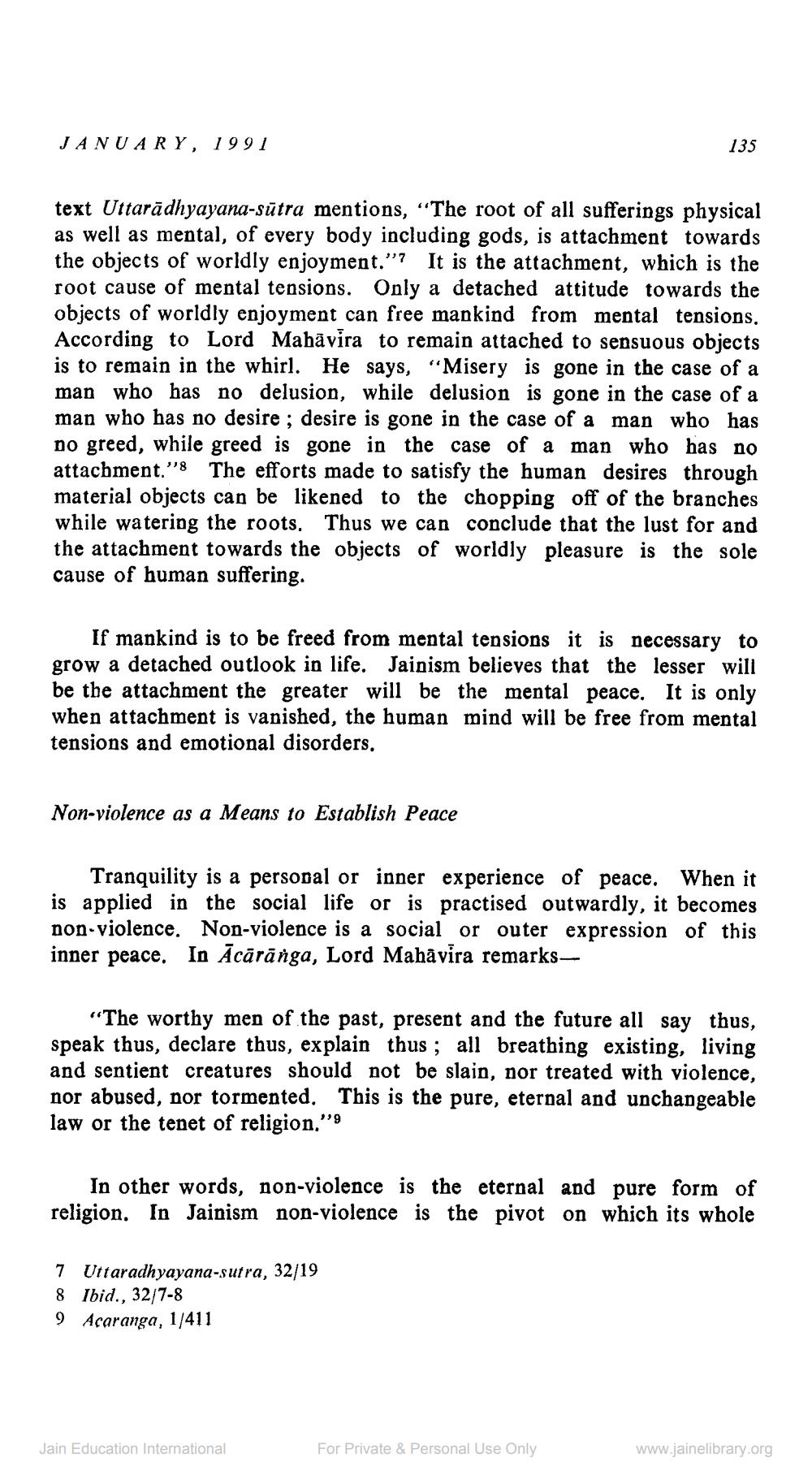________________
JANUARY, 1991
135
text Uttarādhyayana-sūtra mentions, “The root of all sufferings physical as well as mental, of every body including gods, is attachment towards the objects of worldly enjoyment."? It is the attachment, which is the root cause of mental tensions. Only a detached attitude towards the objects of worldly enjoyment can free mankind from mental tensions, According to Lord Mabăvira to remain attached to sensuous objects is to remain in the whirl. He says, "Misery is gone in the case of a man who has no delusion, while delusion is gone in the case of a man who has no desire ; desire is gone in the case of a man who has no greed, while greed is gone in the case of a man who has no attachment.''8 The efforts made to satisfy the human desires through material objects can be likened to the chopping off of the branches while watering the roots. Thus we can conclude that the lust for and the attachment towards the objects of worldly pleasure is the sole cause of human suffering.
If mankind is to be freed from mental tensions it is necessary to grow a detached outlook in life. Jainism believes that the lesser will be the attachment the greater will be the mental peace. It is only when attachment is vanished, the human mind will be free from mental tensions and emotional disorders.
Non-violence as a Means to Establish Peace
Tranquility is a personal or inner experience of peace. When it is applied in the social life or is practised outwardly, it becomes non-violence. Non-violence is a social or outer expression of this inner peace. In Ācārānga, Lord Mahavira remarks
“The worthy men of the past, present and the future all say thus, speak thus, declare thus, explain thus; all breathing existing, living and sentient creatures should not be slain, nor treated with violence, nor abused, nor tormented. This is the pure, eternal and unchangeable law or the tenet of religion."9
In other words, non-violence is the eternal and pure form of religion. In Jainism non-violence is the pivot on which its whole
7 Uttaradhyayana-sutra, 32/19 8 Ibid., 32/7-8 9 Acaranga, 1/411
Jain Education International
For Private & Personal Use Only
www.jainelibrary.org




